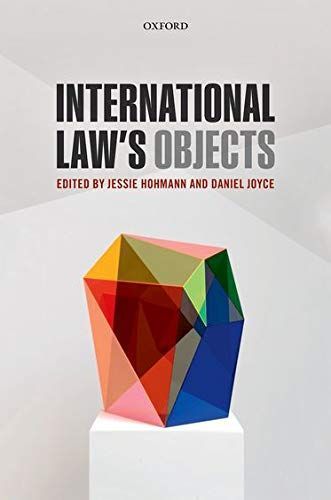
International Law's Objects
International law's rich existence in the world can be illuminated by its objects. International law is often developed, conveyed, and authorized through its objects and/or their representation. From the symbolic (the regalia of the head of state and the symbols of sovereignty), to the mundane (a can of dolphin-safe tuna certified as complying with international trade standards), international legal authority can be found in the objects around us. Similarly, the practice of international law often relies on material objects or their image, both as evidence (satellite images, bones of the victims of mass atrocities) and to found authority (for instance, maps and charts). This volume considers these questions: firstly what might the study of international law through objects reveal? What might objects, rather than texts, tell us about sources, recognition of states, construction of territory, law of the sea, or international human rights law? Secondly, what might this scholarly undertaking reveal about the objects-as aims or projects-of international law? How do objects reveal, or perhaps mask, these aims, and what does this tell us about the reasons some (physical or material) objects are foregrounded, and others hidden or ignored. Thirdly what objects, icons, and symbols preoccupy the profession and academy? The personal selection of these objects by leading and emerging scholars worldwide will illuminate the contemporary and historical fascinations of international lawyers. By considering international law in the context of its material culture the authors offer a new and exciting theoretical perspective on the subject. With an image of each object reproduced in full colour, the book will make an engaging and interesting read for scholars, practitioners, and students alike.